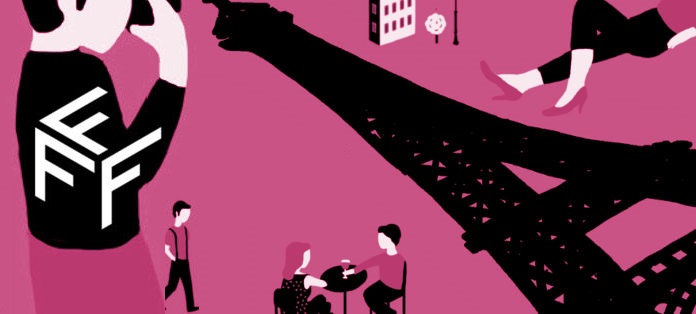The My French Film Festival has been running for six years. It features movies in and out of competition, with juries, awards, and screenings in theatres and online. We take a look at the festival itself and about what it means for cinema in general.
In the words of Jean-Luc Godard, ‘Photography is truth, cinema is truth 24 times per second’. And what better way to introduce an essay about a French film festival than with a quote I definitely knew off hand and I definitely didn’t need to pull from Google. French cinema conjures up a sense of high art and high brows, the latter in the sense of cinema as an art form that elevates the viewer, and in the sense of a face doing a double barrel Roger Moore impression because the dexterity of Amelie’s visual language leaves it breathless, in much the same way A bout de Souffle might, a movie that ironically features an American movie loving protagonist a full ten years before French new wave cinema became American new wave cinema. But it is not that ironic, because French cinema is very much the European Hollywood, with strong financial backing from the State, and a production line that churns out broad comedies or blustering blockbusters to match all the movies that want to say something. Taxi, anyone?
The French Film Festival
French cinema has learned from Hollywood. There hasn’t been a Napster moment for cinema because the industry has embraced streaming and downloading as a way to promote and monetize their product. Music, being cinema’s forbearer in grappling with new technology, has only recently cancelled the pallbearer after showing some signs of health and recovery. Cinema, having embraced the future, is going from strength to strength.
This French film festival monetizes the films showcased here too, but primarily it acts as a way to promote French cinema, an idea that this author fully supports. Everybody should always have access to culture. The festival organisers have a mission statement: allowing web users from around the world to share their enthusiasm for French cinema. Indeed, for as little €5, you have access to a wide range of movies and short films are free to view. Individual movies, such as some Canadian movies and French classics, can be viewed for €1.99 per film. All in all, the costs are not prohibitive. You have the choice of watching the movies in theatres – also offered on airplanes – or online, though the majority of viewers will be absorbing their hit of French culture via their computer screen.
The Festival and How it Works
So this a festival, you say? Yes, with three main prizes: The Chopard Filmakers’ prize, The Lacoste Audience Prize (you must own a Lacoste polo shirt to vote, or be watching online), and The International Press prize. All the juries have an international dimension to them, with the filmmaker and press juries being represented by Europeans, Iranians, and Americans. Since you are not on any of the juries, the festival naturally holds you in contempt by producing an educational kit that breaks each movie in competition down to its themes and ideas, a kind of crash course in French filmmaking 101. Warning: do not form your own opinion about any of these movies. I jest, it is a useful tool and the Festival also give a window into the people on the juries, creating a deeper sense of connection between the viewer and the Festival itself.
They also hope to encourage learning French because, unlike the website, they do not translate these educational kits, much like the press releases. But nobody wants to read those. People may want to read, however, the movie reviews that you write as a movie critic. You can submit your reviews online to the festival website.
There are a wide selection of movies available, from the erotically charged farce of All of Them that, if not original, is well-made, to the Belgian horror based on a serial killer couple from 1940s America, replete with jealousy, murder, and a unique form of co-dependency. Well they do say a couple that kills together, stays together. Sand Castles is a touching drama that, aptly for an online festival, muses over the transient nature of things, and fittingly for a movie, our attempts to add permanence to them, an idea realised in a scene where the protagonist is filming her former lover from a distance. Aside from romantic comedies, crime, and horror, French animation and shorts round out the festival in the most French section of the festival – The Lost Generation. Here, our protagonists ponder over life, love, and the meaning of it all, such as in the very relatable Sunday Brunch.
An Insightful Conclusion
My university town of Cork hosts an annual French Film Festival, a yearly nod to the best movies in the Francophone world, from the excellent Johnny Mad Dog, set in an unnamed African country, to the Algerian set masterpiece of Days of Glory, and, er, Cristoph Lambert’s Highlander. Lambert – and actor lucky enough to enjoy a wonderful career and man lucky enough to be married to Sophie Marceau – attended a screening of Luc Besson’s Subway in Cork and participated in a Q &A afterwards. It was nice touch, and one that made French cinema even more accessible.
Enjoying a French movie in a cinema is not only a nod to a disarming scene in the aforementioned Amelie, it advertences the beginnings of the medium, with French hands being some of the first to pass a film through a projector. The world moves on however, and cinema with it, and this new type of French film festival is innovative, enjoyable, and responsive to how we are now watching our movies, French or otherwise, arthouse or blockbuster, while maintaining our sense of connection to the movies and the people behind them. Plus ça change.
By Enda Kenneally
